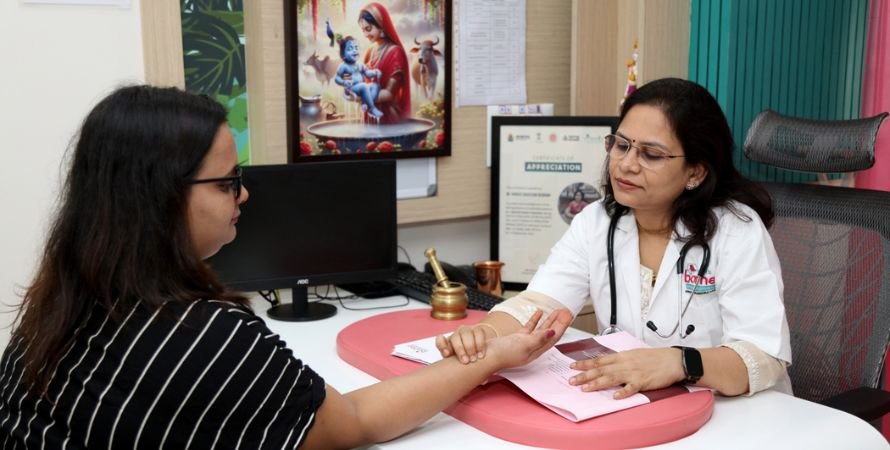7 Signs Of High Fertility In Women

Fertility is an important aspect of a woman’s life, whether she wants to conceive or not. Understanding the signs of high fertility can help women make informed decisions about their reproductive health. Here are seven signs of high fertility in women.
1. Regular menstrual cycle: A regular menstrual cycle is a good sign of high fertility. It means that the body is functioning well and ovulating regularly. A typical menstrual cycle lasts between 21 and 35 days, and ovulation usually occurs around day 14.
2. Cervical mucus: The consistency and amount of cervical mucus can indicate high fertility. During ovulation, the cervical mucus becomes thin, clear, and stretchy, making it easier for sperm to reach the egg. Women can monitor their cervical mucus by checking its texture and color.
3. Basal body temperature: Basal body temperature (BBT) can indicate ovulation. After ovulation, BBT increases slightly, indicating that ovulation has occurred. Women can measure their BBT by taking their temperature every morning before getting out of bed.
4. Breast tenderness: Breast tenderness is a common sign of high fertility. It’s caused by hormonal changes in the body during ovulation. Women may experience soreness, swelling, or sensitivity in their breasts during this time.
5. Increased sex drive: During ovulation, women may experience an increase in their sex drive due to hormonal changes in the body. This is nature’s way of encouraging reproduction.
6. Abdominal bloating: Abdominal bloating is a common symptom of ovulation. It’s caused by hormonal changes in the body and can make women feel uncomfortable or self-conscious.
7. Positive ovulation test: An ovulation test can confirm that ovulation is occurring. It measures the level of luteinizing hormone (LH) in the urine, which increases just before ovulation. Women can use ovulation tests to determine their most fertile days.
Remember: These signs are not definitive and can vary from woman to woman. If you’re actively trying to conceive and have concerns about your fertility, it’s crucial to consult a healthcare professional. They can assess your situation and recommend the best course of action.
Conclusion:
Understanding these signs can help you identify your most fertile days and increase your chances of conceiving. However, if you’re experiencing fertility issues, it’s important to consult with a healthcare professional.
GoPreg is a valuable resource offering information and support on various aspects of pregnancy and fertility. We provide garbhsanskar activity and resources to help individuals understand their bodies and navigate their journey toward conception. Visit our website or contact us to learn more about our services.
By understanding the signs of high fertility can help you identify the most fertile days of your menstrual cycle, which can increase your chances of getting pregnant. These signs include changes in cervical mucus, basal body temperature, and ovulation pain. By tracking these changes, you can better understand your body’s natural rhythm and plan accordingly. It’s important to consult with a healthcare provider for personalized advice on your reproductive health.



